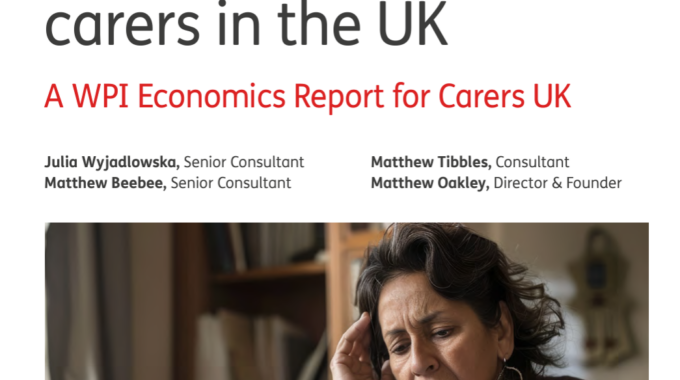
Poverty and financial hardship of unpaid carers in the UK
Carers UK and WPI Economics have recently published a new report on Poverty and financial hardship of unpaid carers in the UK. The report, which was funded by arbdn Financial Fairness Trust, reveals the scale of poverty amongst unpaid carers in the UK and presents effective solutions to lift carers out of poverty.
The report finds that 1.2 million unpaid carers across the UK live in poverty and that the rate of poverty is 50% higher for carers compared to those who do not provide unpaid care. The report also shows that 400,000 unpaid carers in the UK live in deep poverty.
The research shows that one of the main causes of poverty for carers is the inadequacy of the social security system and the difficulty of juggling paid work and unpaid care, with 600 people in the UK giving up work to care every day. High costs of social care, additional costs of caring, and high housing costs are cited as other significant drivers of poverty amongst carers.
Carer’s Allowance, the main social security benefit for unpaid carers in the UK, is one of the lowest benefits of its kind at £81.90 per week (24/25 rate). The report finds that half a million carers receiving Carer’s Allowance live in poverty.
Carers UK are calling on the government to act on recommendations within the report to lift carers out of poverty. Modelling done as part of the research shows that an increase of £11.10 per week to two benefits – Universal Credit Carer Element and Care Addition in Pension Credit – would lift 30,000 people out of poverty and 40,000 people out of deep poverty at a cost of £580 million per year report. In the longer term, an uplift of Carer Addition by £36.30 per week – bringing it up to the level of Carer’s Allowance – could reduce the number of people living in poverty by 20,000 at the cost of £300 million a year. An uplift of Carer Element by £36.30 would reduce the number of people living in deep poverty by 140,000 and the overall number of people living in poverty by 110,000, at the cost of £1.8billion a year.
Further modelling shows that increasing the Carer’s Allowance earnings limit to 21 hours at National Living Wage (NLW) would lift at least 50,000 out of poverty at a cost of £90 million. The report also found that Carer’s Allowance requires a full review to increase the level of support offered by the benefit to a sustainable level.
Carers often have little choice about the caring role they take on and provide vital care that holds society together. Many feel undervalued and say they need more support. The Government must show they care about carers by making small increases to lift thousands out of poverty and better the lives of carers across the UK.
You can read the full report here.





